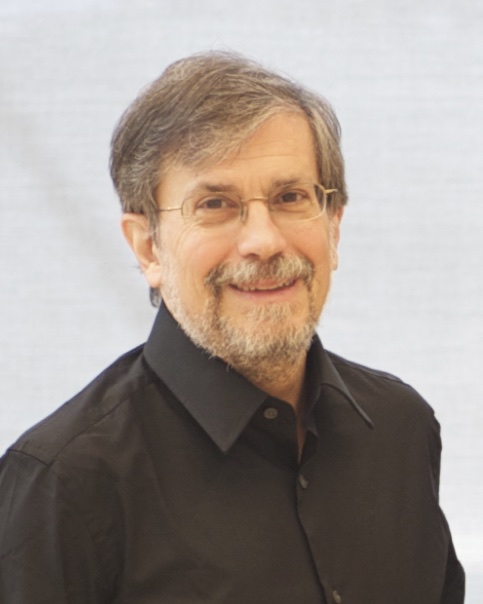Howard S. Meltzer

Professor of Music
Music and Art
EMAIL: hmeltzer@bmcc.cuny.edu
Office: F-1130P
Office Hours: Monday: 2:30 P.M. to 4:00 P.M., Friday: 11:00 A.M. to 12:00 Noon, 1:00 P.M. to 1:30 P.M.
Phone: +1 (212) 346-8655
Howard S. Meltzer, pianist, horn player, music theorist, began his musical studies at The Juilliard School’s prepartory division in 1959. Until 1996 when he was appointed Assistant Professor Music Theory at the University of North Texas, Dr. Meltzer was primarily a working musician. He was pianist and co-director of the New York based Riverside Chamber Players, and then the horn player for Quintessential Winds in Dallas, Texas, and Penn Central Winds in Lewisburg, Pennsylvania. He has a special interest in music for children, and was one of the music directors for New York Kids on Stage, a program of the New York City Department of Parks and Recreation. His one-act children’s opera, The Happy Prince, was written for that program. He continues his performance activities here in New York in addition to his research and writing on music and technology, and music and reception theory.
Dr. Meltzer served on the North Texas and Central Pennsylvania boards of the American Civil Liberties Union.
Expertise
Philosophy of Music, Aesthetics, Music Theory, Piano Performance
Degrees
- Ph.D. Columbia University, Music Theory and Historical Musicology,1994
- B. Mus. Manhattan School of Music, Piano Performance, 1975
Courses Taught
- MUS103 is an introduction to the music of European tradition and its relation to and influence on contemporary culture through a variety of listening experiences. The course will emphasize the place of music in society as well as influences by and on other cultures. Selected musical works, most dating from the 16th century through the present, are the subject of exploration. Credit will be granted for MUS102 or MUS103 but not both.
- Designed for study of the piano as secondary instrument, the course includes acquaintance with the keyboard, scales, chords, sight reading, transposition and elementary piano repertoire.
- This course is the first level of music theory courses that focuses on the analysis of fundamental musical materials and stylistic comprehension of music, primarily of the 18th century.
Prerequisite: MUS 105 or MUS 123 - The study 16th Century Style Species Counterpoint. This is a class in strict composition based on the theoretical work of Johann Joseph Fux. Elements of 16th Century counterpoint and its counterpart in 18th century music theory will be introduced through composition and analysis. Particular attention will be given to the works of Palestrina, Lassus, and Victoria as models of composition. Prererquisite: MUS 105 or Departmental Permission
- This course is the second level of music theory courses that focuses on the analysis of fundamental musical materials and stylistic comprehension of music, primarily of the 18th century.
Prerequisite: Entrance is by placement exam, or successful completion of MUS 117 with a grade of C or higher, or by permission of the department - This course is the third level of music theory courses that focuses on the analysis of fundamental musical materials and stylistic comprehension of music, primarily of the 18th century.
Prerequisite: Entrance is by placement exam, or successful completion of MUS 217 with a grade of C or higher, or by permission of the department
Research and Projects
The Post-Human Pianist – a performance and research project on the reshaping of the human pianist by the changing instrument and repertoire.
Publications
- Music, Politics, and the Imagination, Seismopolite, Journal of Art and Politics, Volume 9, 2014
- Artificial Music: David Cope and EMI, Humanities and Technology Review, Volume 19, Fall, 2000
- Viewing Art as Existentially Autonomous in Analecta Husserliana, vol. 7 , Kluwer Academic Publishers, 2001
- An Aesthetics of Silence and Repetition, Humanities and Technology Review, Volume 20, Fall, 2001
- Constant Change, Constant Identity: Music’s Ontology in [Im]Permanence: Cultures in and Out of Time, edited J. Schacter and S. Brockmann,Carnegie Mellon/Penn State University Press, 2008
- Ways of Listening, Kendall/Hunt Publishing Company, 2014
- The Sound in the Museum,Humanities Technology Review, Vol. 35, 2016
Honors, Awards and Affiliations
- 2005-2006, Mellon Fellowship, Center for the Humanities, CUNY Graduate Center
A year-long research fellowship to explore the relationship of politics and the arts. - 2010 – 2011, Faculty Seminar, “From Bestiary to BioCulture: Constituting the Human,” Macaulay Honors College – City University of New York, New York, New York
- Member, Local 802, American Federation of Musicians
Additional Information
On-line publications
“The Sound in the Museum” Humanities and Technology Review, Volume 35, 2016
https://htronline.weebly.com/2016.html
“Music, Politics, and the Imagination” Sesimopolite 9
https://www.seismopolite.com

